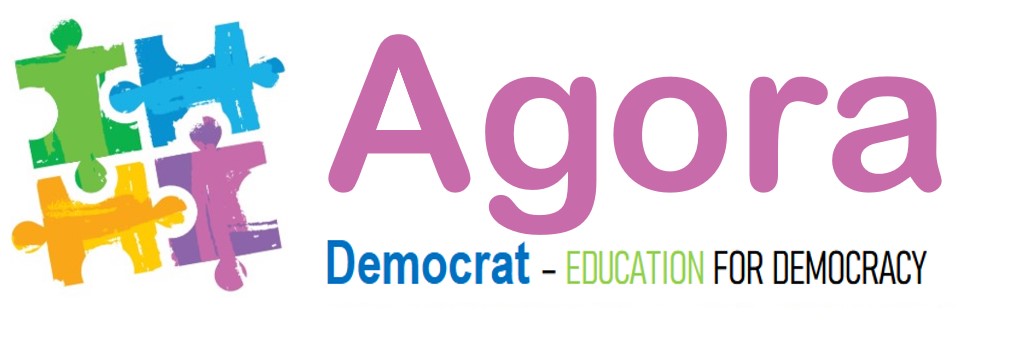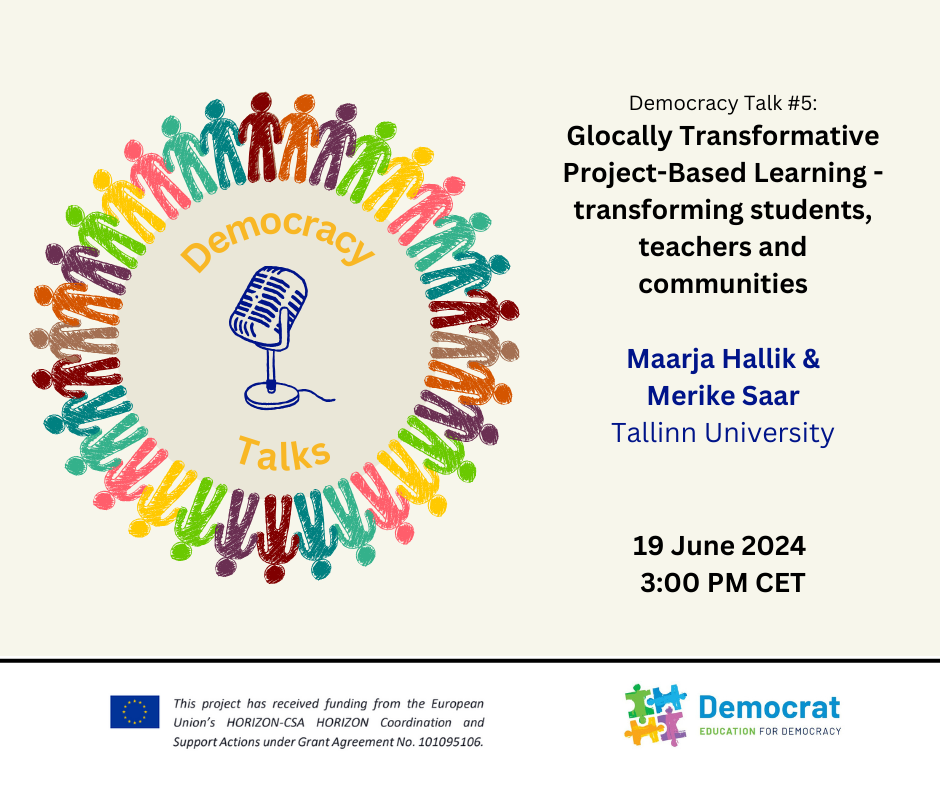Hello everyone! Welcome to the fifth Democracy forum!
Every other Wednesday, we’ll share this online space to discuss important questions and topics that have arisen from the Democracy talks in the week before or from blog posts and current events.
Last week, we had an enlightening 5th Democracy Talk featuring special guests Maarja Hallik and Merike Saar from Tallinn University. They presented the project “Glocally Transformative Project-Based Learning – transforming students, teachers, and communities.”
Maarja and Merike shared their experiences with Proovikivi, an educational program that introduces project-based learning to Estonian schools. “Proovikivi” translates to touchstone or challenge in English, and its main approach is learning by doing. This initiative aims to empower learners to become locally and globally active citizens by developing specific competencies through project-based learning. You can read more about the project here.
They addressed several key questions during their talk:
- What specific competencies do you aim to develop through the project-based-learning approach in order to empower learners to become locally and globally active citizens?
- What were some of the key challenges you faced when introducing project-based learning into diverse schools (from the teachers’ and learners’ perspectives)?
- In what ways do you believe that project-based learning contributes to the development of competencies that are crucial for democratic societies?
We invite you to rewatch the talk here and share your thoughts on the following questions or anything related to the discussion with Maarja and Merike:
- How can project-based learning enhance the teaching of democratic competencies in schools?
- What are the practical challenges of implementing project-based learning in diverse educational settings?
- How can schools better support teachers and students in adopting project-based learning methods?
- What are the broader implications of project-based learning for democratic education? Any challenges or criticisms?
We look forward to your comments and insights!
Additionally, join us for our next Democracy Talk at 3 pm CET next week Wednesday (July 3rd) with Professor Marousos Marangudakis, who will be discussing the social and political conduct curricula in Greek schools.
Feel free to add your comments below!


Leave a Reply